This dog tops the most popular breeds of the American Kennel Club (AKC), and its fandom doesn’t just exist in the United States. The French Bulldog is seventh worldwide in canine favorites, and it ranks in first in the United States. You don’t have to spend a lot of time with this dog to understand why. The French Bulldog dog is an absolute sweetheart, and their personality and temperament are a significant part of the appeal. And all of this comes wrapped up in one adorable package.
To learn about the French Bulldog is to fall in love with this pooch. It’s hard to believe this breed may have descended from the Roman Empire Molossers, who were early fighting dogs related to today’s Mastiffs. Nonetheless, they’re popular for a few reasons.

The 10 Reasons French Bulldogs Are So Popular
1. The Cuteness Factor
First, let’s address the elephant in the room of the many things that attract pet owners to the French Bulldog. This pup is so darn cute! Humans have even developed a nurturing aspect to not only our own offspring but also to animals with infantile characteristics, which is called the “cuteness factor.” This often includes animals that are small, with proportionally small eyes compared to the size of their heads, and a small mouth or chubby cheeks. Now take a look at the French Bulldog. Their big eyes and ears are their outstanding features, so it makes sense that humans are naturally drawn to these dogs. More on this later!
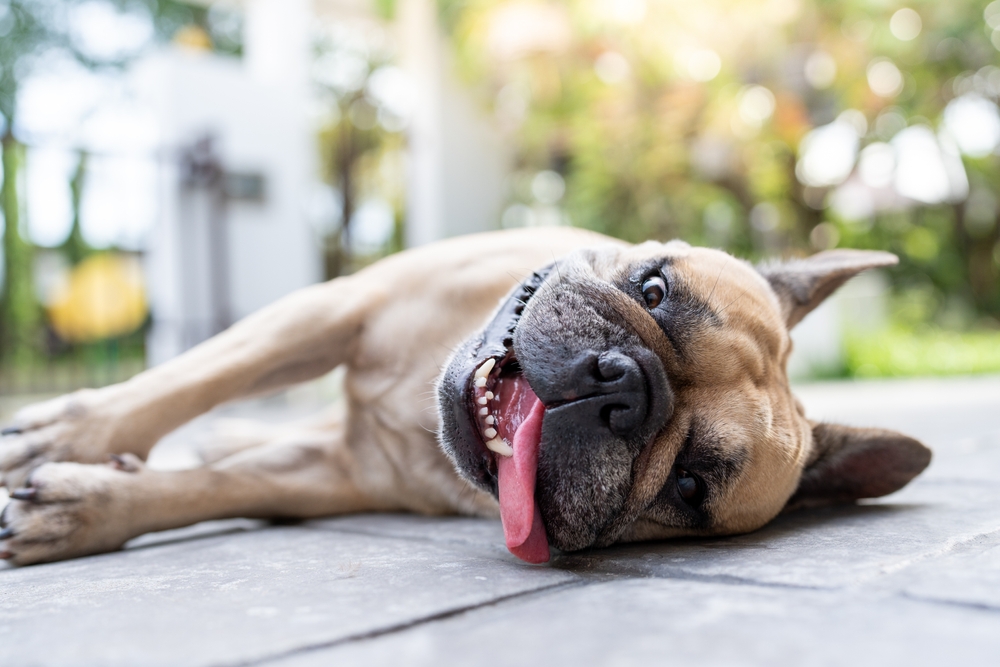

2. Friendliness
The French Bulldog captured the hearts of the lacemakers in the textile center of Nottingham, England. They often used these dogs as lap warmers, believe it or not, and they brought their dogs with them to Paris during the industrialization of the textile industry. There, the dogs caught the attention of the wealthy Americans traveling through the continent. They discovered that one of their trademark traits is the breed’s friendliness.
You could say that these new interactions translated into an openness to strangers. French Bulldogs are somewhat protective but not overly so. This dog loves their family and has no problem showing it.
3. Good With Children
The French Bulldog’s openness to people extends to children, making many parents consider the French Bulldog as a family pet. These dogs aren’t particularly nippy, which is another point in their favor. They tend to stick close to home as well. This breed is a smaller animal, but not too small, making them a suitable size for interacting with small children with parental supervision.
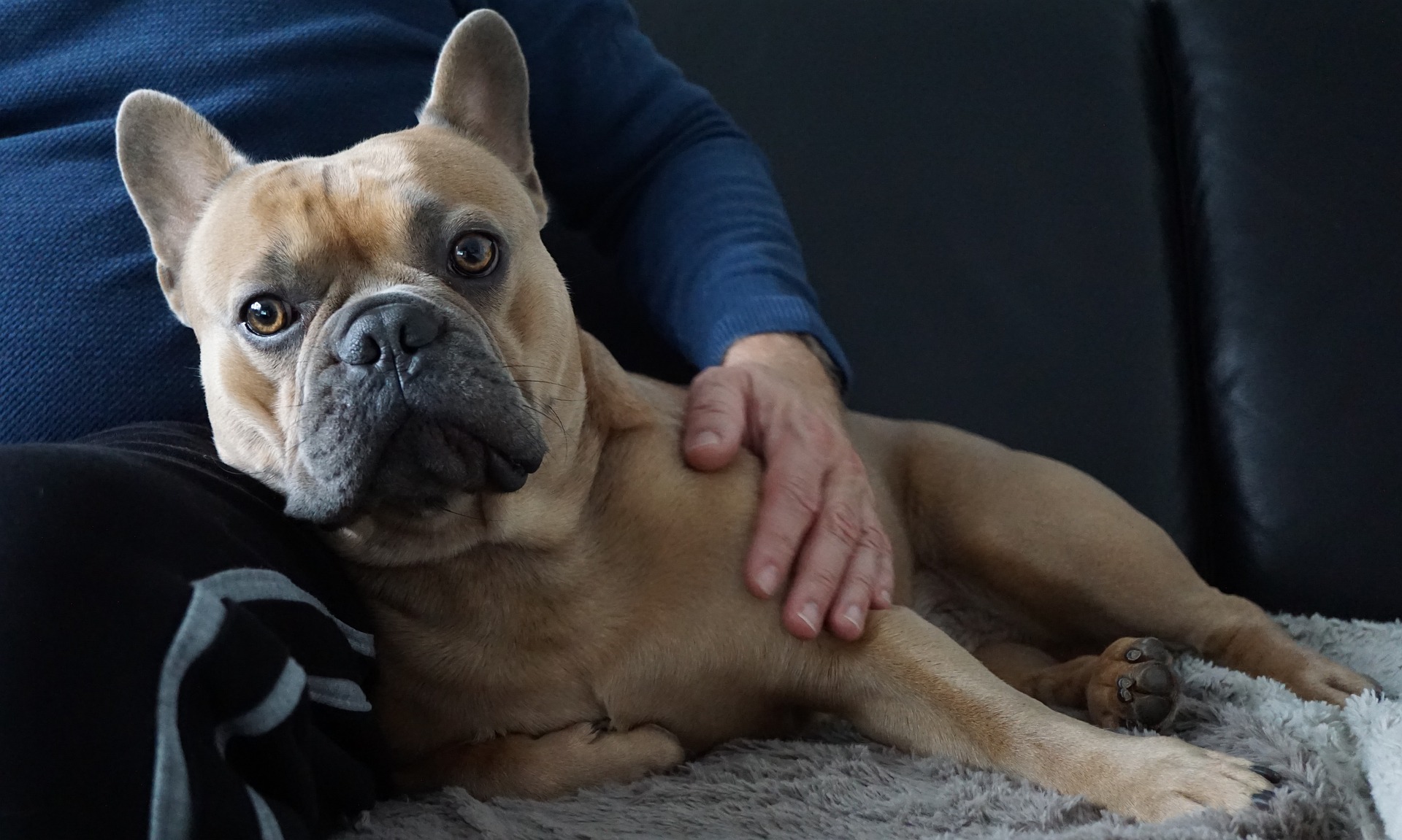

4. Playfulness
The French Bulldog isn’t just cute; these pups are playful, which underscores our last point. They are energetic but not overly intense. They enjoy the interaction and attention. They would rather be with their family than be alone. That makes these dogs best suited for active households where someone is always around to provide enrichment and mental stimulation.
5. Relatively Quiet
Many small dogs compensate for their size with big voices. Scientists have many theories about what accounts for this supposed fierceness. The French Bulldog crushes that preconception. These dogs usually bark only when necessary or to alert despite their playfulness. Behavioral issues are common complaints with relinquished pets, but the Frenchie only wants your love and attention and is eager to please.
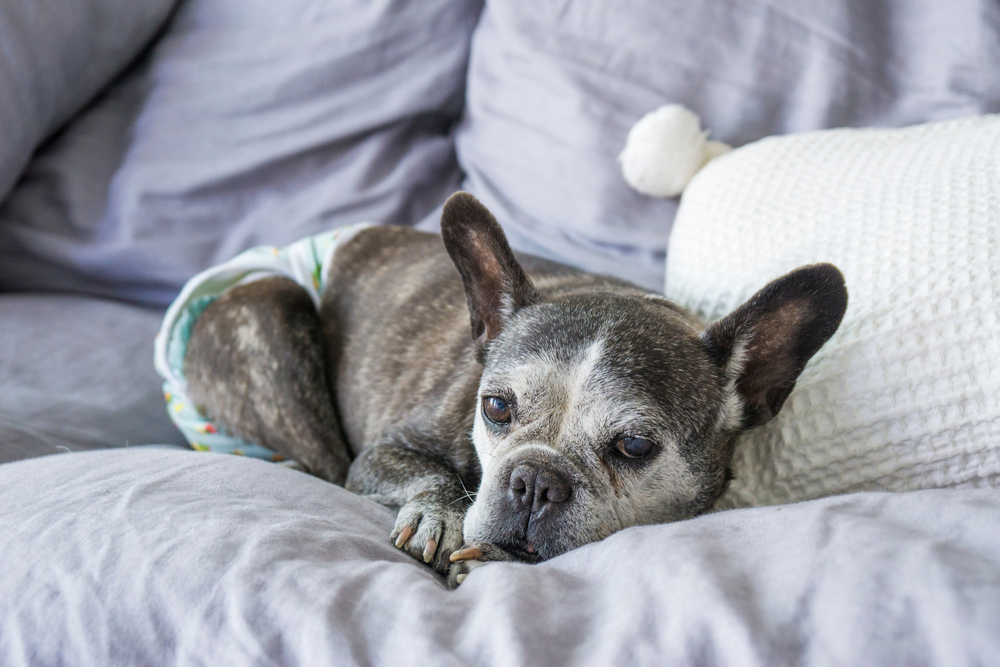

6. Adaptability
Many pet owners choose this breed because of their adaptability. They make excellent animal companions for apartment dwellers. Their activity level is suitable for living in these homes. Frenchies are also great dogs for first-time pet owners. They are easy to train, with just a smidgen of stubbornness. Consistency and positive reinforcement are the keys to success to combat any stubbornness early on though.
7. Minimal Grooming
Grooming is a labor-intensive but necessary task when you own a dog. It involves keeping the animal’s coat in decent shape, but it’s also an excellent time to bond with your pet and check their skin, ears, and nails for attention. The French Bulldog makes it easy with their smooth, short coat. A weekly brushing session with a hound glove or curry brush will keep your pup looking their best.
Shedding is another factor to consider. This dog sheds, but it’s nothing like a Samoyed or Golden Retriever. However, regular grooming and a healthy diet can make it more manageable.
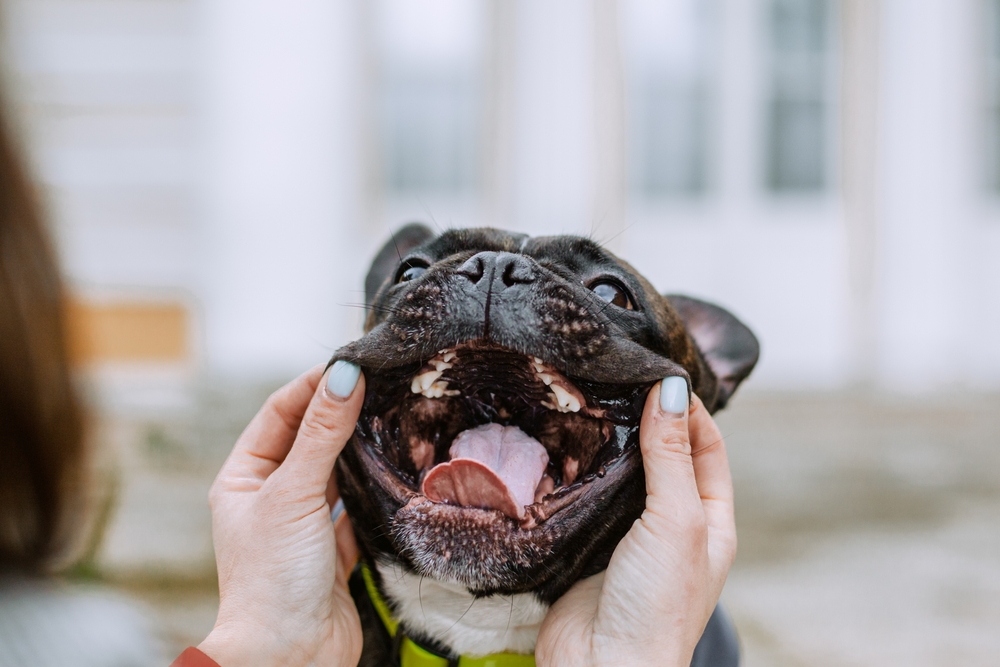

8. Easygoing Nature
We’ve discussed how the French Bulldog is adaptable. An easygoing nature goes hand in hand with this trait. It’s a product of selective breeding. Interestingly, this temperament factors into the breed’s standard, with the pup required to have an “even disposition.”
9. The Right Size
The right size comes into play when you consider how people interact with their pets. It’s worth noting that 95% of owners consider their animal companions family members. Being the right size falls in line with these feelings. It’s easier to take your dog on vacation or to the lake if your pet is small. Also, some vet bills and boarding are more affordable because of this, which can make a difference for many people.
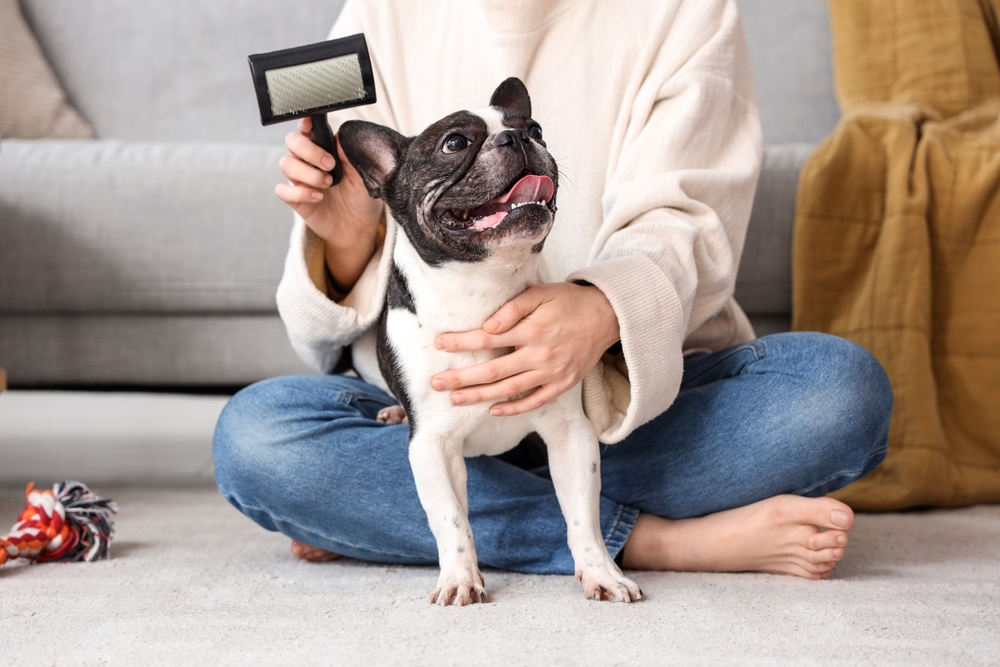

10. Companion Dog
Many dogs had other jobs, such as herding, guardian, and hunting hounds. Meanwhile, the French Bulldog has a long history as an animal companion. That gives them an edge since enthusiasts selectively bred the pups to encourage desirable traits. It comes without the perceived burden of wanderlust potential, prey drive, or independence. The Frenchie only wants to be with you, making them a true best friend.


More About the Baby Face of the French Bulldog
Our research led us on a fascinating path of the visual impression of the French Bulldog, particularly other brachycephalic dog breeds, and human feelings about these dogs. The evidence suggests that our love for this pup is inevitable. It rests with the animal’s face and skull shape. Scientists describe the human-like features of these dogs as being part of the baby schema, meaning they almost look like infants to us, as we touched on in our first point.
Research has shown the perceptions of stirring maternal instinct are hard-wired into humans and are evident in neural responses in the female brain. These responses seem to transcend species lines with feelings of communal sharing. Think of when you see a cute puppy. Your immediate instinct may be to pet the dog—after asking for permission, of course. You and the owner have a shared moment, talking about the pup. These interactions support this hypothesis.
Other evidence points to the short muzzle and size of dogs like the French Bulldog. Both traits correlate with the perception of cuteness. Further research upholds these feelings crossing species lines. It’s not just babies but puppies, too. Scientists call it the concept of the “Kindchenschema.”
Why do we have this instinct? For humans, helping a baby helps our survival. Brachycephalic dog breeds like the French Bulldog trigger these responses. Our brains perceive the animals with their large foreheads and eyes with their short muzzles as baby-like, thereby providing the necessary stimulus.
Interestingly, it may also affect our behavior. One study found that looking at images of cute dogs increased the reaction time and behavior carefulness of the participants’ actions. That makes evolutionary sense to be more involved in your actions if survival is on the line. However, these instincts have consequences for brachycephalic dog breeds like the French Bulldog.
Equating dogs with babies undoubtedly has scientists pulling their hair with anthropomorphic descriptions. Puppies aren’t little humans, nor should they be treated as such. However, some argue that anthropomorphism helped humans survive. It may have made us better hunters to perceive more effective strategies if we attributed emotions to animals.
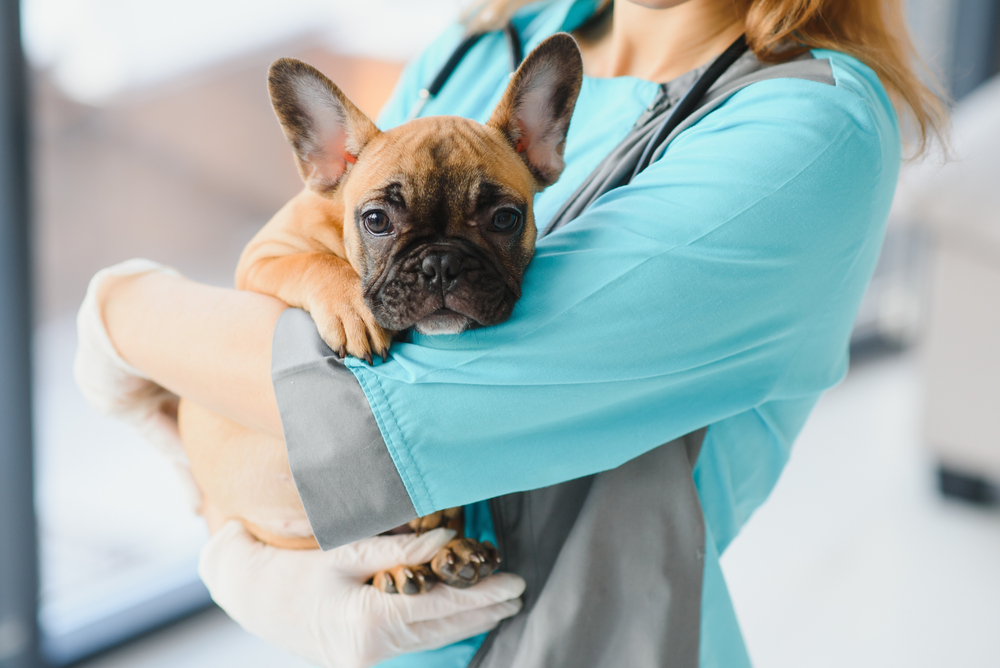

Another theory posits anthropomorphism evolved in people over 40,000 years ago. It set the stage for dogs to become our pets and, ultimately, our support animals. Some even go so far as to say that our animal companions are a factor in our survival. Undoubtedly, some French Bulldog owners would agree. However, the wild card with this breed is the consequences of the demand for them and it affects the breed’s welfare.
Important Things to Know Before Buying a French Bulldog
The global popularity of this dog speaks to a universal perception of these pups. The French Bulldogs are riding a significant tide. However, concern rests with the health risks associated with these dogs that come with selective breeding. Sadly, these animals have a greater propensity for several medical problems, including respiratory conditions, heatstroke, exercise intolerance, and spinal disease.
If you are considering a French Bulldog, we strongly urge you to buy only from sellers who conduct the recommended pre-breeding health screenings. Do not buy a dog from an individual who won’t offer this information or give you a health guarantee. After all, some conditions develop later in the dog’s life.
The Great Pyrenees Club of America sets the gold standard for your relationship with the breeder. Their Code of Ethics states, “A breeder shall be available to his buyer for whatever advice, reasonable aid, and assistance they may need for the life of that dog.” Given the breed’s popularity, it’s more important than ever with the French Bulldog. Unfortunately, it makes the puppies ripe for exploitation. Play it smart and ask questions, including requesting to see the mother and littermates.


Conclusion
The French Bulldog deserves their place as the top dog. They are friendly and affectionate pets that tick off many boxes that people want in an animal companion. They are adaptable and reasonably quiet. They are also good with kids and will make a welcome addition to your household. However, understanding their unique needs is essential for their physical and mental well-being.
Featured Image Credit: Tanya Consaul Photography, Shutterstock






